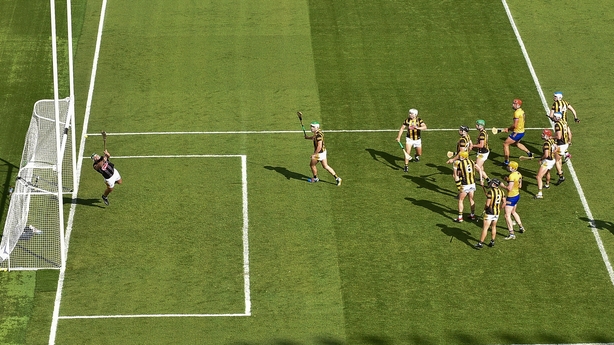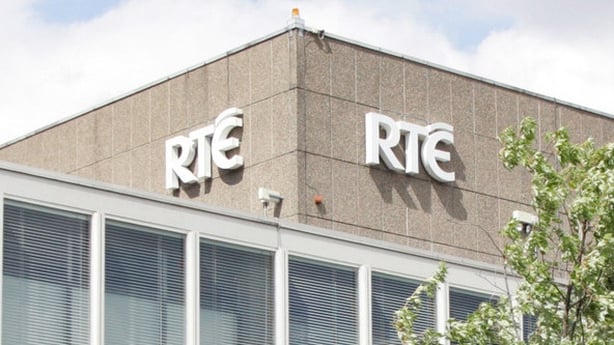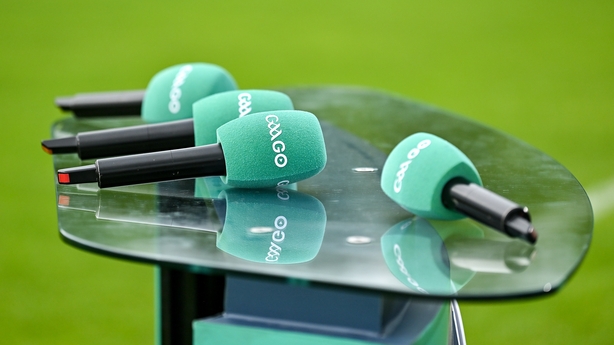Long before the Ryan Tubridy payments controversy, there was the GAAGO controversy.
This emerged in late spring when disgruntled hurling and football fans voiced their anger because some of their favourite matches were not available free-to-air, but instead were put behind a paywall on the GAAGO online platform.
Today, representatives from both RTÉ and the GAA will appear before the Oireachtas Committee on Sport and Media.
They will be joined by other sporting organisations and broadcasters, but the main topic of interest for politicians will be the GAAGO controversy.

It is unfortunate for RTÉ, that it finds itself in front of an Oireachtas committee today dealing with this issue on a week when the organisation has had such a torrid time dealing with a separate controversy.
But for sports fans, and TV licence fee payers, this issue may be just as important to them, and they will want answers to some key questions, especially considering both organisations receive such enormous amounts of the public's money.
Here are five key questions the committee will want answers to today:
1) Who decided which matches should be placed behind a paywall, and which would be free-to-air?
Committee members will want to know whether some high-profile matches were deliberately placed behind a paywall to drive subscriptions to GAAGO.
Who decided which matches should be shown on which platforms? And who signed off on decisions to keep certain big games away from free-to-air television viewers?
2) Were any other broadcasters approached when Sky Television decided not to renew its GAA rights?
This is a key question for the GAA.
It has already been made clear by RTÉ that the broadcaster was not in a position to show every match on television because of fixture congestion, and so some of the slack was taken up by GAAGO.

But why could another free-to-air broadcaster not have stepped in?
Did the GAA invite any other broadcaster to bid for the rights?
Or did the organisation decide to give preferential treatment to its own online broadcasting platform GAAGO and to RTÉ at the expense of offering other broadcasters such as Virgin or TG4 the opportunity to show the matches free-to-air?
3) Is RTÉ’s involvement in GAAGO in conflict with its remit as a public service broadcaster whose duty is to serve the public?
GAAGO is jointly owned by the GAA and RTÉ.
Former RTÉ director general Dee Forbes was a director alongside Group Head of Sport Declan McBennett. New RTÉ Director General Kevin Bakhurst has indicated that he will not be a director of GAAGO in the future.
Committee members will want to know how you can serve the interests of both the licence fee payer and the GAAGO subscriber at the same time.
How can it be in RTÉ's interest for high-profile matches to be kept behind a paywall?
And how can the directors of a commercial company like GAAGO act in that company’s best interests, if they are also working for another organisation looking to screen the best content for its viewers?
4) How many people are really watching matches on GAAGO?
The GAA is an organisation with its roots in the community.
It is volunteer-led, with tens of thousands of people giving their time freely every week to ensure it thrives.
The management of the organisation have come in for criticism for hiding some of the crown jewels of the sport behind a paywall and depriving loyal volunteers and supporters of their chance to see their heroes in championship action.

Today committee members will want to know today how many people are really watching matches on GAAGO, and how does this compare to a television audience?
How many people have subscribed to the service in Ireland? And what is the projected profit for the current year?
5) How does the GAA and RTÉ justify putting matches online when a portion of the population still has poor or no broadband?
This is perhaps the most difficult question for either organisation to answer.
There are pockets of rural Ireland where the broadband is as weak as the GAA is strong.
Is it fair to deprive the people who live in these areas of seeing their counties play championship hurling or football?
Can either organisation justify putting matches on an app that is difficult to master for people who are not technically literate?
The coverage of matches, the commentaries and analysis on GAAGO is widely praised, but is the technology up to scratch?
There are some fundamental questions of fairness that have to be asked of both organisations whose supporters span from young to old, and urban to rural.







